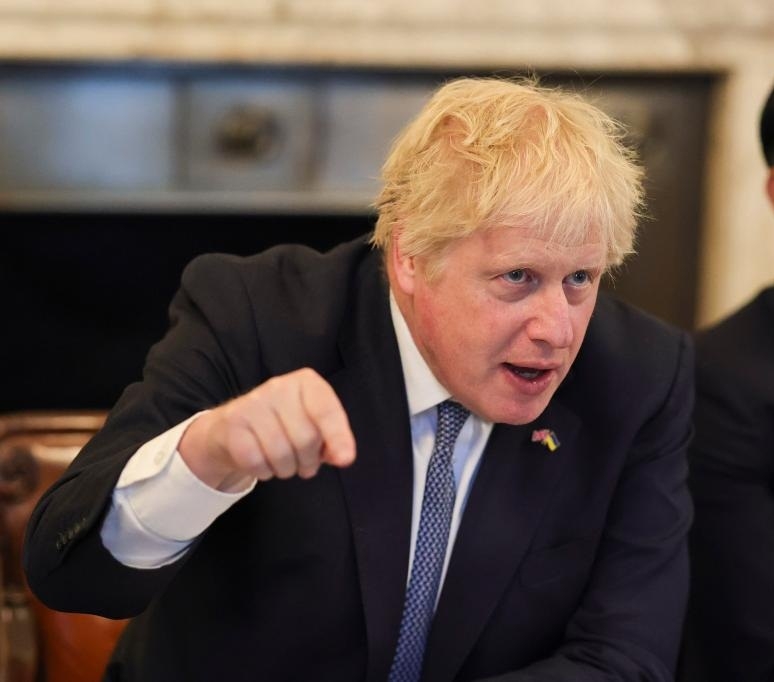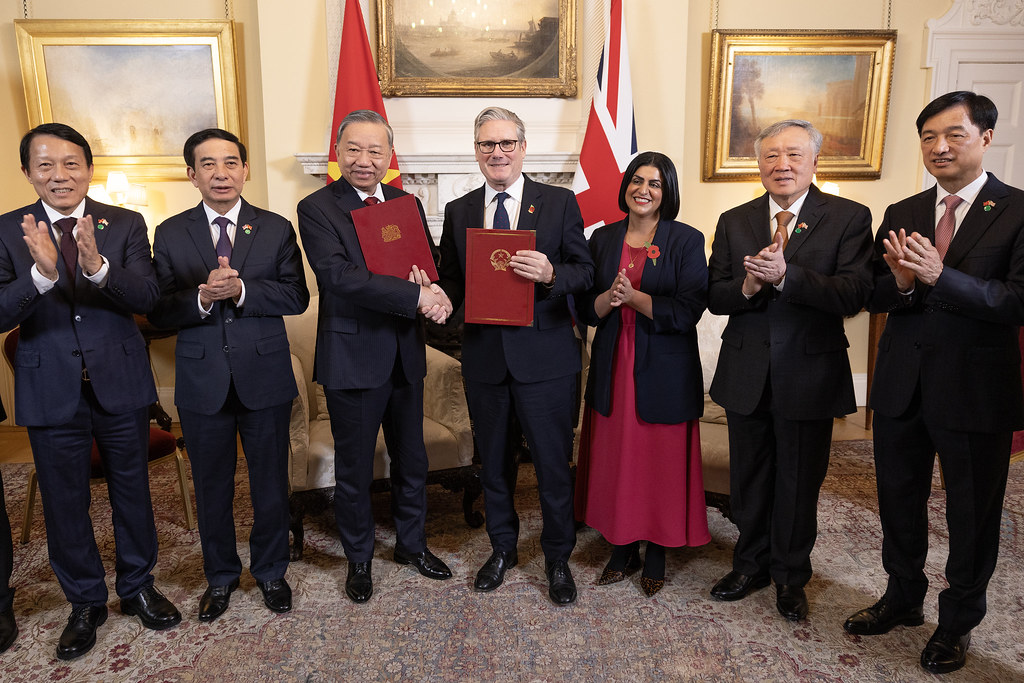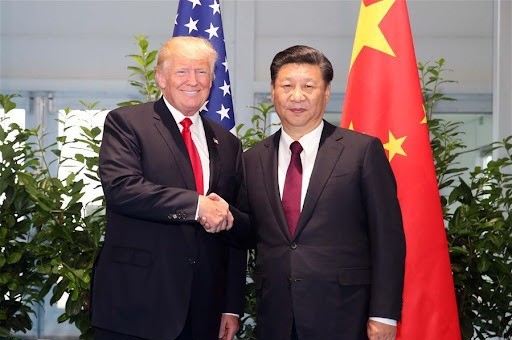Former PMs Boris Johnson, Theresa May and John Major unite in warning Conservatives against abandoning Britain’s net zero ambitions as climate policy becomes a new fault line within the party…reports Asian Lite News
Boris Johnson has warned that the Conservatives will not win the next general election by “bashing the green agenda”, adding to growing dissent among former prime ministers over the party’s shift away from environmental commitments.
Under Business Secretary Kemi Badenoch, the Conservatives have pledged to repeal the Climate Change Act and scrap what she described as an “impossible” commitment to reach net zero carbon emissions by 2050, arguing that it risks “bankrupting” the United Kingdom. The move marks a sharp departure from the climate priorities advanced by previous Tory leaders, including Johnson himself.
However, in a new episode of The Smart Society Show podcast, Johnson called the tone of the current political debate “depressing”, suggesting that the public’s concerns lie not with opposing green policies but with finding affordable solutions. “I didn’t see us soaring in the polls as a result of saying what rubbish net zero is. I didn’t see a massive leap in support for the Conservatives,” he said, pointing to the lack of voter enthusiasm for anti-climate rhetoric.
The former prime minister argued that people “simply want cheap green energy” as they continue to grapple with the cost-of-living crisis. He became the third former Tory leader in a single week to voice criticism of the party’s approach to climate change.
Earlier in the week, Theresa May issued a pointed warning to fellow Conservatives, urging them not to indulge in “populism” for “short-term political ends”. In a speech to the House of Lords, she described the government’s plan to scrap net zero targets as an “extreme and unnecessary measure” that could “fatally undermine” Britain’s standing as a global leader on climate issues.
May said the decision would not only damage the UK’s international reputation but also threaten jobs and investment generated by the green transition. “This announcement only reinforces climate policy as a dividing line in our politics, rather than being the unifying issue it once was,” she told peers. “And for the Conservative Party, it risks chasing votes from Reform at the expense of the wider electorate.”
She went on to cite polling evidence showing that a majority of Britons continue to back policies aimed at eliminating carbon emissions, despite concerns about the cost of implementation.
A day after May’s intervention, Sir John Major also voiced disapproval, saying that the party’s current direction risked “alienating” mainstream voters. He warned that turning away from consensus positions on Europe, climate change and overseas aid would isolate the party from the majority of public opinion.
“We fare less well when moderate opinions are banished or – where maintained – tolerated and ignored,” Major said. “So – when our party says ‘no’ to Europe, ‘no’ to climate change, ‘no’ to overseas aid – it falls out with the majority of public opinion. Such policies may delight a minority of opinion, but not the broad mass of electors in our essentially tolerant and kindly nation.”
Johnson’s own record on the issue remains complex. As prime minister, he was an outspoken advocate of Britain’s net zero ambitions and hosted the landmark COP26 climate summit in Glasgow in 2021. Yet since leaving office, he has reflected that his government “went far too fast” in pursuing green targets amid volatile global energy markets.
He acknowledged that the spike in energy prices following Russia’s invasion of Ukraine had been “a big kick in the teeth” for consumers, making it “really tough for people like us to make the case for reducing CO2”. Nonetheless, Johnson insisted he had “lost none of my zeal” for the net zero agenda, maintaining that the long-term benefits remained clear. “I still fundamentally believe that it’s the right thing to do, even if you can’t get there as fast as we wanted to do,” he said.
The former prime minister also cautioned that new technological pressures could add to the energy challenge. “The vast demands of AI,” he said, mean that energy bills could continue to rise unless Britain finds “cheaper and more effective solutions”.
Johnson’s intervention adds to a deepening rift within the Conservative Party over climate policy, as MPs and ministers weigh the economic pressures of the green transition against the political risk of appearing anti-environment. With the next election expected in 2026, senior figures are increasingly split between those who see net zero as a vital part of Britain’s economic future and those who argue it has become an unaffordable burden.
For the three former leaders, however, the message appears united: turning climate policy into a culture war could prove electorally disastrous. All three have framed environmental action not as a partisan issue but as a national one – a test of Britain’s credibility, competitiveness and conscience on the global stage.
As Johnson put it, the challenge is not whether to pursue net zero, but how to make it work for ordinary people. And in that debate, the Conservatives’ next steps may determine not only their political future, but also the direction of Britain’s green transition itself.













